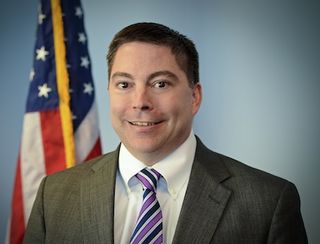FCC's O'Rielly Slams Protective Orders Item

FCC commissioner Michael O'Rielly says that the FCC's new protective orders for the Charter-Time Warner Cable deal (and how they signal the FCC will treat sensitive information going forward) could subject industry players to irreparable harm.
That came in his dissenting statement. O'Rielly said he could find nothing in either the "means or the ends" of the decision to support.
That was in slight contrast to commissioner Ajit Pai, who dissented from the majority of the order, but found one bright spot in the order's granting of parties who object to a bureau decision on disclosing confidential information the right to appeal it to the full commission, and then the courts.
O'Rielly said that the FCC's decision "creates vast exposure for communications providers’ market sensitive information, including pricing and other contractual terms." The FCC item said it was "sensibly balancing the public and private interests involved."
O'Rielly said the biggest problem with the item was that rather than a "necessary link" standard for making information accessible to third parties it has a "vague" new "relevance" standard. "While the court may have left the door open for the Commission to meet its existing standard or potentially establish a new one grounded in sound policy, in this latest iteration the Commission eliminates any sort of rational test and instead gives itself complete discretion to disclose materials upon a persuasive showing of relevance. In effect, the Commission is asserting the right to demand documents not necessary to a transactional review, call them relevant, and disclose them to outside entities," said O'Rielly.
The FCC majority said that, at least since it came out with the protective orders decision in 1998, it has not required a "persuasive showing" or "necessary link" standard.
In the item released Sept. 11, the commission was both coming up with protective orders to create a framework for sharing sensitive program contract information in the Charter-TWC deal with third parties and responding to a court remand of its previous decision to share that info in the Comcast-TWC and AT&T-DirecTV deals with potentially hundreds of third parties. The court had called the FCC's protective order policy "confusing and often contradictory," but on remand said the FCC was free "to clarify its current policy or to amend it."
Broadcasting & Cable Newsletter
The smarter way to stay on top of broadcasting and cable industry. Sign up below
The FCC has done that, but O'Rielly and Pai said that constitutes changes in policy that the FCC should have put out separately for public comment.
"The majority leverages the need for fair, expedient review of the proposed transaction before us to set new procedures for the treatment of confidential commercial information," O’Rielly said in his dissent. "Most egregiously, these policies will apply to all proceedings going forward, neatly sidestepping both the opportunity for any public input and the Administrative Procedure Act."
As to the policies themselves, O'Rielly said he called "blithely dismissive" the FCC's finding that there was little risk of harm in allowing competitors to review sensitive information is small or that it will help the FCC do its work. The FCC said it needed the info for a “full rounded picture” of the issues involved, and needed to share it so that "interested parties [will] be able to provide us with a different perspective on the materials in the record, thus aiding our understanding..."
Contributing editor John Eggerton has been an editor and/or writer on media regulation, legislation and policy for over four decades, including covering the FCC, FTC, Congress, the major media trade associations, and the federal courts. In addition to Multichannel News and Broadcasting + Cable, his work has appeared in Radio World, TV Technology, TV Fax, This Week in Consumer Electronics, Variety and the Encyclopedia Britannica.

